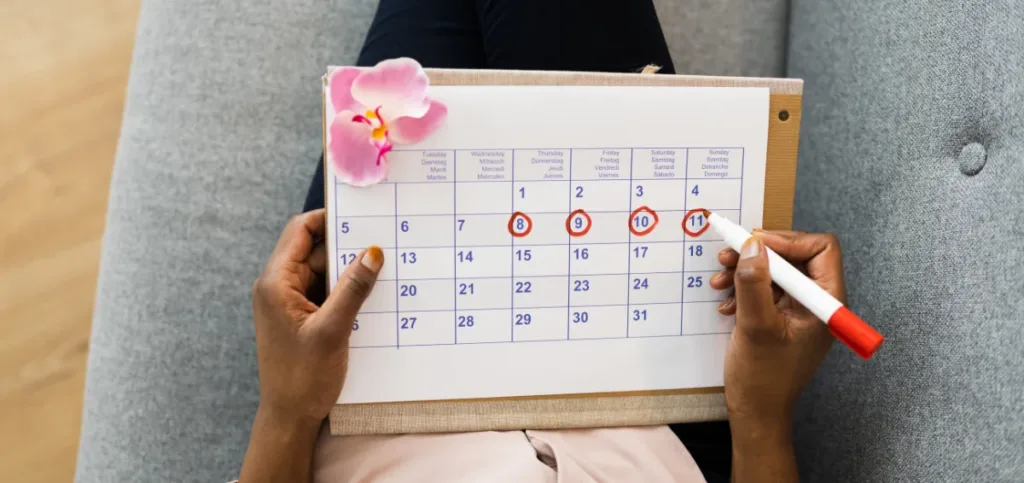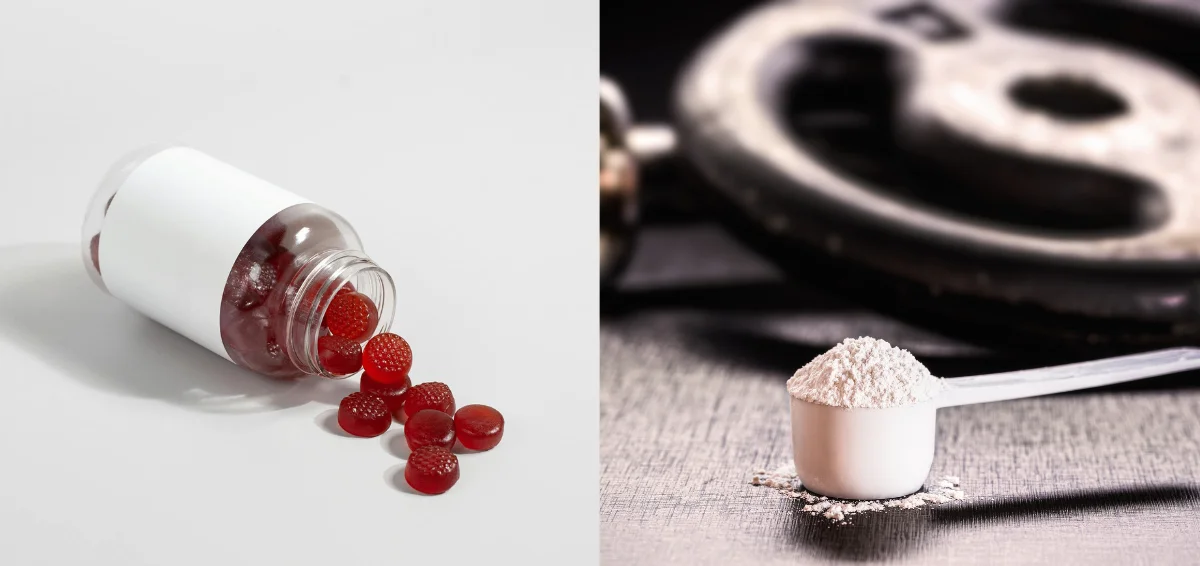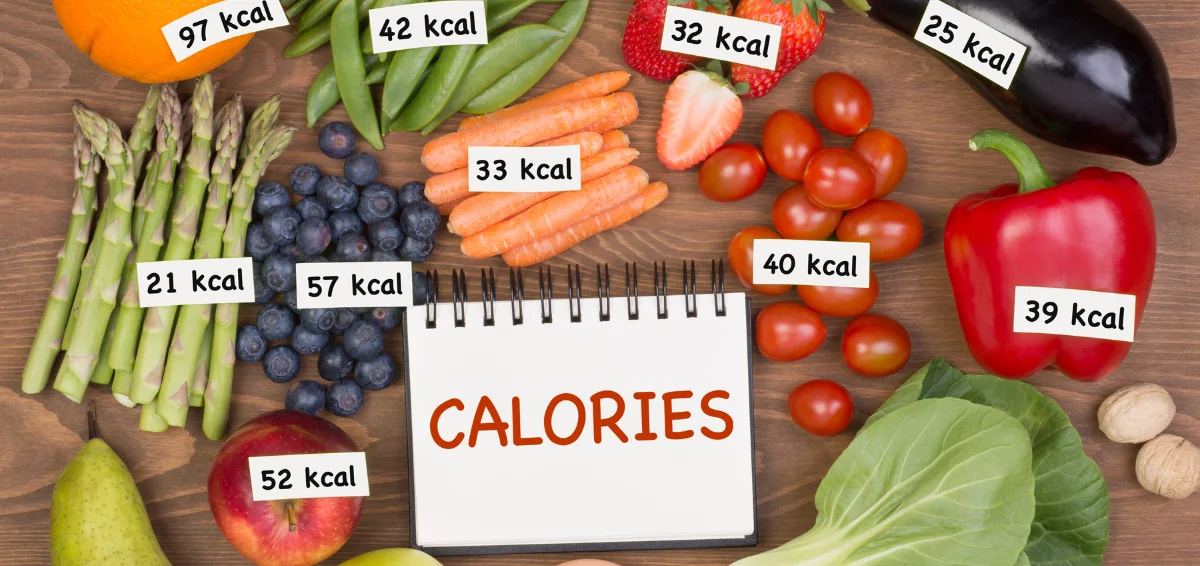
For Women, Menstruation is a natural part of life. It occurs once a month. The physical and emotional changes accompany this menstrual cycle. There are often questions about how it affects. Its major role is in metabolism and calorie expenditure. One common query is whether women burn more calories during their period. And they are compared to other times of the month. Let’s delve into this topic. To uncover the facts and dispel any myths.
Also Read: Why Is It Important to Ease Into an Exercise Program?
Role of Hormones in Appetite and Energy

Meaning-Menstrual Cycle
The menstrual cycle has many phases. It involves hormonal fluctuations. These phases include menstruation, also called bleeding. The second phase is the follicular phase. The third phase is ovulation. The luteal phase is the final phase. Each phase is associated with different hormonal levels. Each phase can influence metabolism. This results in energy expenditure to some extent.
Calorie Expenditure
Metabolism plays an important role in the whole body. It converts food into energy. Also, there are certain calories your body needs to perform basic functions, which means the basal metabolic rate. These include tasks like breathing, circulating blood, and cell production at rest. Factors such as age, Weight, and height influence it. Physical activity and the thermogenic effect of food also contribute. That includes the total daily energy expenditure.
Hormonal Influence
The chemicals, Estrogen, and progesterone levels are involved in this influence. They rise and fall during the menstrual cycle. These hormones can affect appetite. It also affects the energy levels and how the body takes nutrients. Some women report increased hunger and cravings during specific phases of their cycle. This potentially impacts the overall calorie intake.
Does Menstruation Increase Calorie Burn?
It is normally considered that women burn more calories during menstruation. That is not well-supported by scientific evidence. Research generally indicates that hormonal fluctuations influence metabolism slightly. Sometimes, the difference in calorie expenditure between menstrual phases is minimal. Factors such as physical activity level play a more significant role. Overall metabolic rate also plays a role in calorie burn throughout the month.
Factors that Influence Energy Expenditure

1. Physical Activity
Regular exercise contributes to calorie burn. Women must engage in more physical activity. As a result, they generally have higher TDEE regardless of menstrual phase.
2. Muscle Mass
muscle tissue burns more calories compared to fat tissue; individuals with higher muscle mass usually have a higher Body mass index.
3. Diet
The various types and amounts of food consumed affect metabolism. More energy is required by Protein than to digest fats. The same applies to carbohydrates as well. This contributes to the thermodynamic effect of food.
4. Sleep
Inadequate sleep disrupts hormones, regulates appetite, helps with energy expenditure, and potentially affects weight management.
Must Read: Is It Possible for an Individual to Exercise Too Much?
Common Myths- Debunked

Myth 1
You burn more calories during menstruation. While some women may experience slight changes in energy levels, changes in appetite during their period do not significantly impact overall calorie burn. There are no changes in appetite during the menstrual cycle in other phases.
Myth 2
Cravings indicate an increase in Calorie needs. Also, Cravings during menstruation are common due to hormonal changes. They do not necessarily reflect increased calorie requirements, though. It involves managing cravings, which is important for overall health, especially in the case of balanced nutrition.
Myth 3
Since Menstruation causes weight gain. Let us learn that Water retention during menstruation can temporarily cause weight fluctuations. Although these do not equate to fat gain. Hormonal fluctuations generally occur during menstruation. Once menstruation ends, Weight typically returns to normal.
Managing Energy Levels & Weight- Here are the Tips

1. Having a Balanced Diet
To support overall health, eat a variety of nutrient-dense foods. Energy levels are also affected throughout the menstrual cycle.
2. Regular Exercise
You should incorporate regular physical activity into your routine to support metabolism. Although this is good for the overall well-being of women.
3. Hydration
It is a must to stay hydrated and drink plenty of water. It is very important during menstruation.
4. Sleep
Always aim for adequate sleep to support hormone regulation. Overall energy levels are affected due to lack of sleep, and hence, it’s an important tip.
Conclusion
The menstrual cycle influences hormone levels and can impact appetite. Also, in terms of energy levels, it does not significantly alter calorie burn compared to other times of the month. Factors such as physical activity, muscle mass, and overall metabolic rate have a more substantial influence on energy expenditure. Understanding these factors and maintaining a balanced lifestyle can help manage Weight.
As a result, it will support overall well-being throughout the menstrual cycle.
As we come to know, menstruation is a natural process. It affects women differently. And there is no evidence to suggest that it increases calorie burn in a significant way. Women should focus on a healthy diet and regular exercise. They can effectively manage their energy levels. So, it leads to maintaining a healthy weight throughout their menstrual cycle.
All experiences with menstruation are unique to women. So, it is essential to listen to your body. The body signs play an important role. Also, it is important to prioritize self-care during this time.










